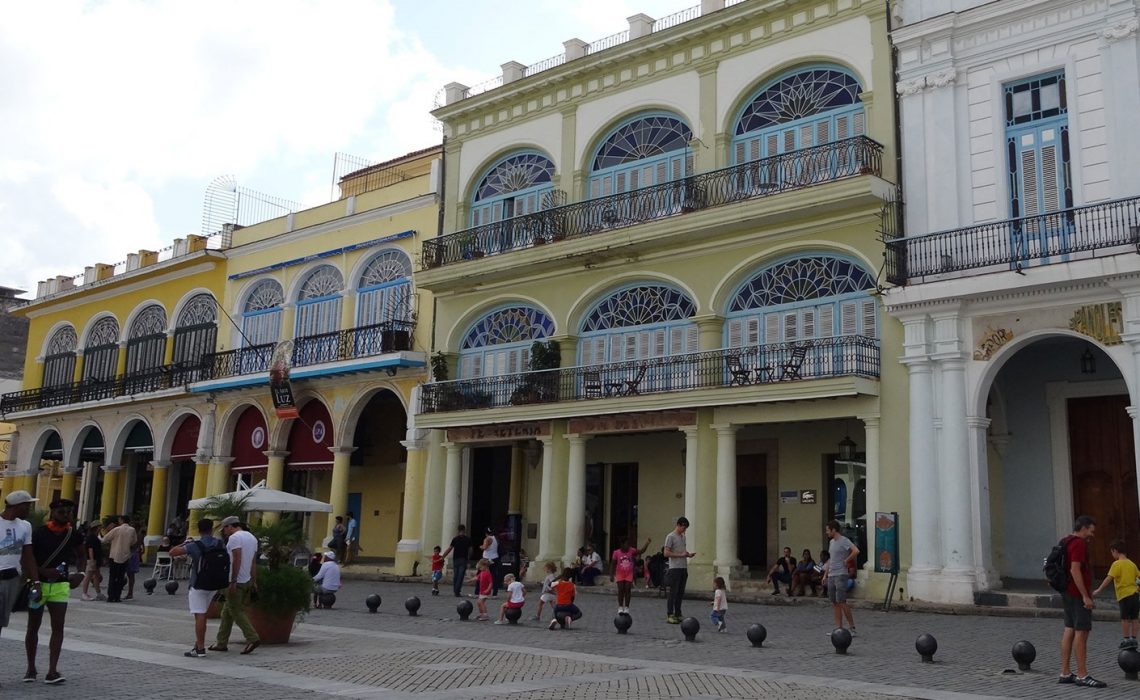
You might also like:
President Trump on Friday is set to end individual people-to-people travel to Cuba, reversing one of the hallmarks of President Obama’s Cuba policy.
Ahead of Trump’s planned speech in Miami, White House officials said his new policy would end the ability for Americans to travel to Cuba individually under the people-to-people travel category.
The policy reverts to the pre-2016 rule, which mandates that anyone traveling under that category must be part of a group to ensure compliance with federal rules that prohibit tourism visits to Cuba.
“The [individual people-to-people] category is particularly ripe for abuse,” the official said. “So directing the Treasury to change regulations to ensure anyone who does people-to-people travel does so as part of a group will ensure they engage in a schedule of activities that actually do so.”
In March 2016, ahead of President Obama’s historic trip to Havana, his administration changed rules that had long prohibited most Americans from visiting the island without being part of a licensed tour group.
The rules did not actually change what U.S. visitors are legally able to do in Cuba, and regular tourism is still technically illegal, but it allowed individuals to take people-to-people trips and self-certify in an affidavit that they had complied with those regulations.
The Department of the Treasury defines that compliance as “a full-time schedule of educational exchange activities intended to enhance contact with the Cuban people, support civil society in Cuba or promote the Cuban people’s independence from Cuban authorities and that will result in a meaningful interaction between the traveler and individuals in Cuba.”
White House officials said that commercial air service and cruises to Cuba would not be impacted by the changes. But finding accommodations on the island will become more difficult, since the directive bans most business transactions with the Cuban military, which owns the lion’s share of Cuba’s tourism infrastructure, including hotels.
Travel companies reacted to the anticipated reversal.
In a statement, Marriott International CEO Arne Sorenson said a reversal of “progress” in Cuba would be “exceedingly disappointing.”
“We have invested significant resources establishing a presence in Cuba,” Sorenson said. “And with one hotel open and another in the pipeline, we have just begun our work creating opportunity and a more vibrant tourism sector on the island.”
Airbnb issued a statement asserting that since it began operating in Cuba two years ago, “Airbnb has helped individual Cuban people earn extra income, and we have seen how travel can break down barriers and promote understanding.”
Tour operators offering licensed people-to-people tours will not be directly impacted by the new rules.
“While the news comes as a step back for travel to Cuba, it is business as usual for Intrepid Travel,” said Leigh Barnes, director of Intrepid Group North America. “For now, the restrictions have been tightened but they have not been reversed. Intrepid and the entire travel community should continue to stand for open borders and stand with Cuba.”
While commercial air regulations to Cuba were not slated to change, analysts had mixed reactions to the potential impact of the policy on U.S. carriers that offer flights to Cuban airports.
“That will kill the market,” predicted Bob Mann, aviation analyst with R.W. Mann and Co. “Whatever expansion occurred on the basis of ‘Don’t look, don’t tell’ is going to go away. … You’ll be back to square one in terms of demand.”
Analyst Mike Boyd disagreed, predicting the new policy would not affect air service demand.
“You can’t cut out what isn’t already there,” he said. “It’s not going to affect traffic at all, because there isn’t much traffic.”
Earlier this week, secretary of state Rex Tillerson said that the Trump administration would toughen rules on doing business with Cuba since the Castro regime has not improved its human rights record under Obama’s rapprochement policy.
On Thursday, White House officials said that under the new directive, the U.S. would maintain its embassy in Cuba. In addition, there would be no additional restrictions on the amount of rum and cigars Americans can bring back from the island.
The officials said that when Trump said on Sept. 16 that he would reverse Obama’s Cuba policy, it was “very much a promise that he made, that he took seriously and that he kept.”
Sоurсе: travelweekly.com
